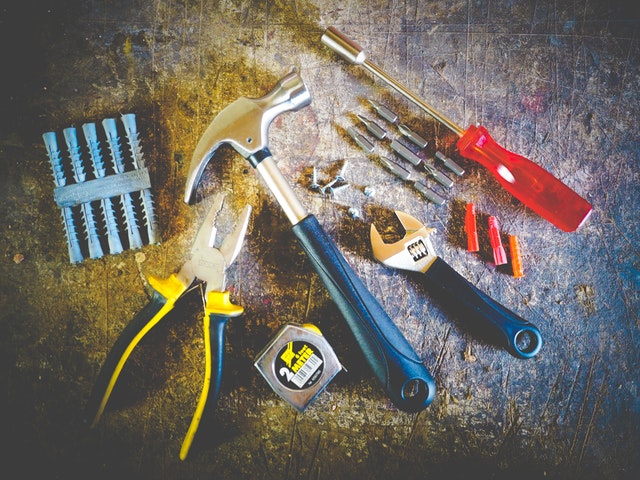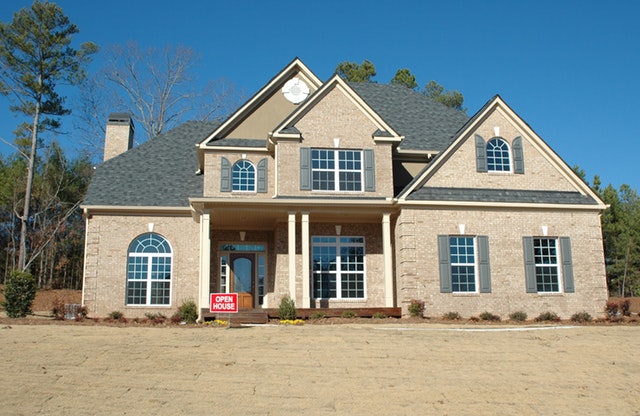How To Keep Your Pets Safe During Your Home Sale
 If you have pet, you probably wonder what you can do to keep them safe after you decide to put your home up for sale. With all the disruption going on during a home sale, it’s all too easy for pets to get lost, frightened or even injured. Learn how to keep your beloved pets safe during your home sale.
If you have pet, you probably wonder what you can do to keep them safe after you decide to put your home up for sale. With all the disruption going on during a home sale, it’s all too easy for pets to get lost, frightened or even injured. Learn how to keep your beloved pets safe during your home sale.
Provide An Oasis During Repair Work
Most home sellers make a few repairs before allowing agents to show the home for sale. In some cases, repairs can be extensive, leading to a lot of construction materials, tools and strange new items in the home. This can be frightening for pets as they watch their once familiar setting undergo changes.
Make sure your pet has someplace to get away. They should have their own oasis where everything is still the same. It may be their doghouse, a spot in the corner in your bedroom, or a basement, as long as they can escape to familiar surroundings.
Keep Routines
Pets are creatures of habit. They can easily become disoriented or frightened when their routine is disrupted, as is so often the case during a home sale. Meals may be sporadic, food and water dishes may get moved around the room, and regular walk times can be overlooked.
To keep your pets safe from stress, try to keep their routines as unchanged as possible, including small things like those quiet moments when they like to sit on your lap at the end of the day or during your morning coffee.
Take Them With You During Showings
Your real estate agent advises that you and your family leave the home during showings. But you should bring your pets with you, too. Leaving pets behind in the garage, barn, basement or behind a closed door really isn’t a great idea. Curious homebuyers could inadvertently come upon your pet, giving both parties a shock. A startled pet might even run off or lash out.
Instead, keep a pet carrier in the car for use when you and your family have to leave for showings. You’ll keep the whole family together and your homebuyers can freely explore your entire property.
These pet safety tips will ensure that your pet will get through the home sale process as smoothly as possible. It’s really just a matter of providing a little oasis, maintaining routines, and avoiding buyer and pet interactions.
If you are interested in buying a new property or refinancing your current property, be sure to contact your trusted home mortgage professional for information about current financing options.

 It takes hard work to achieve the American Dream of homeownership. Everyday people work to save for a down payment and build a good credit score. When you turn the key to your first home or dream home, the sweat equity feels well worth it.
It takes hard work to achieve the American Dream of homeownership. Everyday people work to save for a down payment and build a good credit score. When you turn the key to your first home or dream home, the sweat equity feels well worth it. These days, people want energy-efficient homes that look great. To answer the call of passionate environmentalists, developer are rising to the occasion and designing home features that minimize waste, save energy and reuse reclaimed materials. The results are gorgeous, green homes that help move the sustainable living trend forward.
These days, people want energy-efficient homes that look great. To answer the call of passionate environmentalists, developer are rising to the occasion and designing home features that minimize waste, save energy and reuse reclaimed materials. The results are gorgeous, green homes that help move the sustainable living trend forward. If you’re looking to get a non-traditional deal on a new home purchase, you may encounter either a short sale or a foreclosure. These two terms refer to sales that are not usual. As a homebuyer, it’s important to understand the differences between them and how each one might affect your buying experience.
If you’re looking to get a non-traditional deal on a new home purchase, you may encounter either a short sale or a foreclosure. These two terms refer to sales that are not usual. As a homebuyer, it’s important to understand the differences between them and how each one might affect your buying experience. The Tax Cuts and Jobs Act of 2017 instituted some of the most dramatic changes to the financial landscape in the United States in over 30 years. These adjustments to the IRS code have an effect on everyone who earns and spends money in this country.
The Tax Cuts and Jobs Act of 2017 instituted some of the most dramatic changes to the financial landscape in the United States in over 30 years. These adjustments to the IRS code have an effect on everyone who earns and spends money in this country.